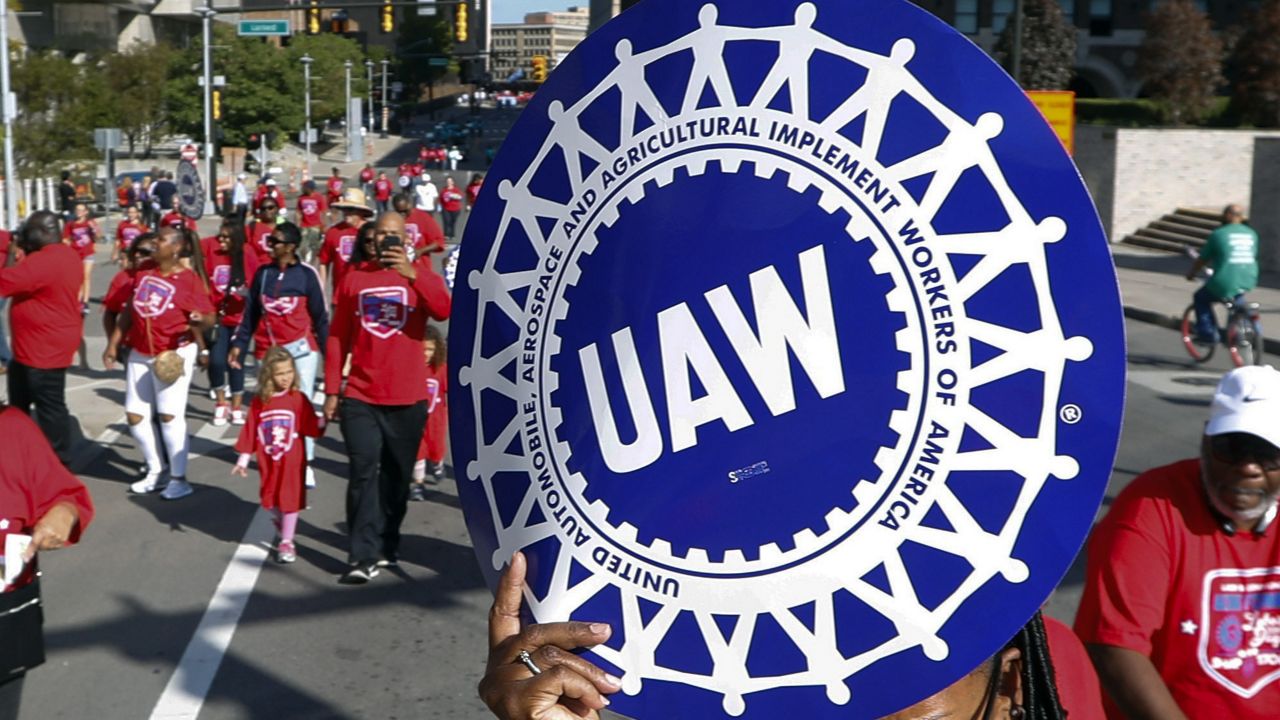The union representing 150,000 autoworkers voted Friday to authorize a strike against the Detroit Three automakers if the two sides can’t negotiate a deal by Sept. 14, when their current contract expires.
UAW President Shawn Fain said 97% of the union’s voting members approved the strike authorization.
The UAW has presented a list of 10 demands to Ford Motor Co., General Motors and Stellantis, including a 32-hour workweek, double-digit wage increases, pension benefits for all workers, limited use of temporary workers and more paid time off, but their demands have not been met.
President Biden weighed in on the potential strike Friday in Lake Tahoe, saying he is "concerned" and has been talking to the UAW. He restated his support for one of the union's demands that if a job is displaced with a new position, "the first choice should go to the UAW member who had the job and the salary should be commensurate."
Earlier this month, Biden had urged the two sides to make a deal. But the autoworkers and carmakers remain far apart.
Negotiations between the two sides have become increasingly contentious this month, with Fain throwing a proposed contract from Stellantis into a trash can during a livestream. Fain has been meeting with each of the Detroit Three automakers separately since July.
The current contract has been in place four years. A recent study from the Anderson Economic Group estimates a 10-day UAW strike could cost the U.S. economy more than $5 billion.



